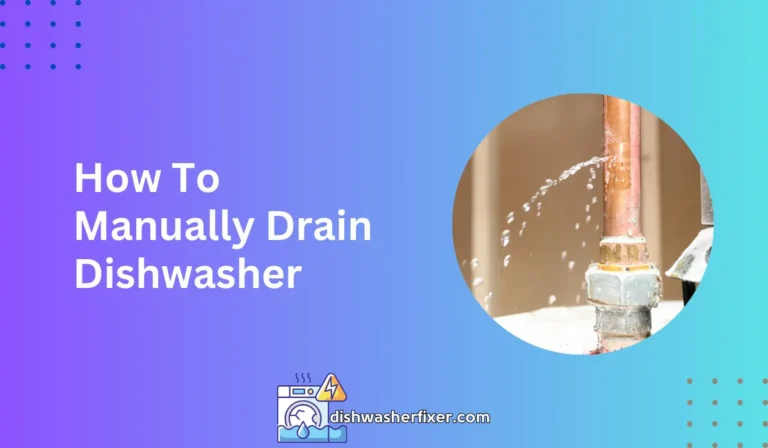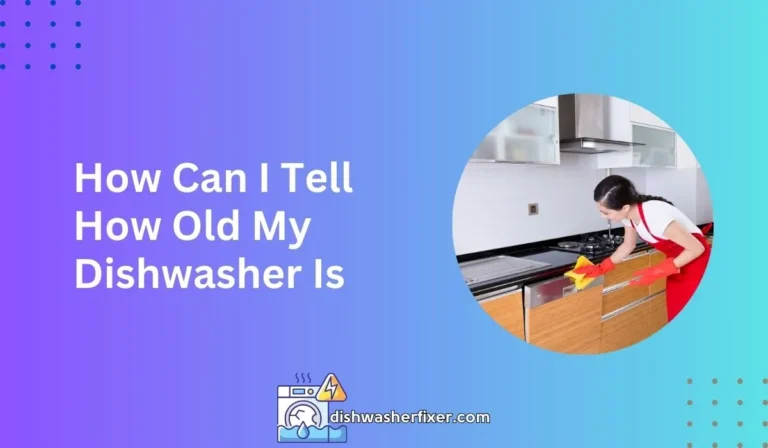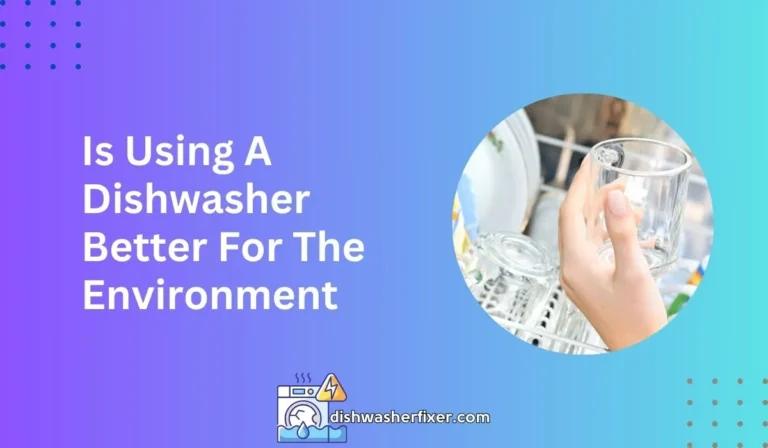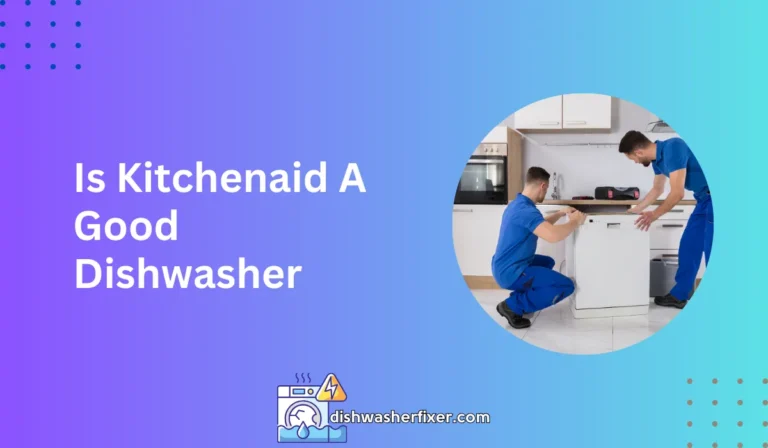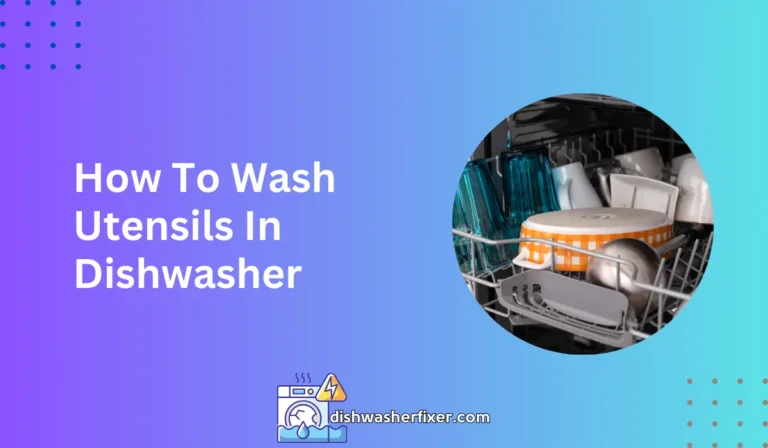Why Is My Dishwasher Not Draining? Quick Fixes Revealed
A dishwasher may not drain due to a clogged filter, blocked drain hose, or malfunctioning drain pump. Check for food debris or grease blockages in the filter and hose. Inspect the drain pump for obstructions or failure.
Common Causes of Dishwasher Drainage Problems
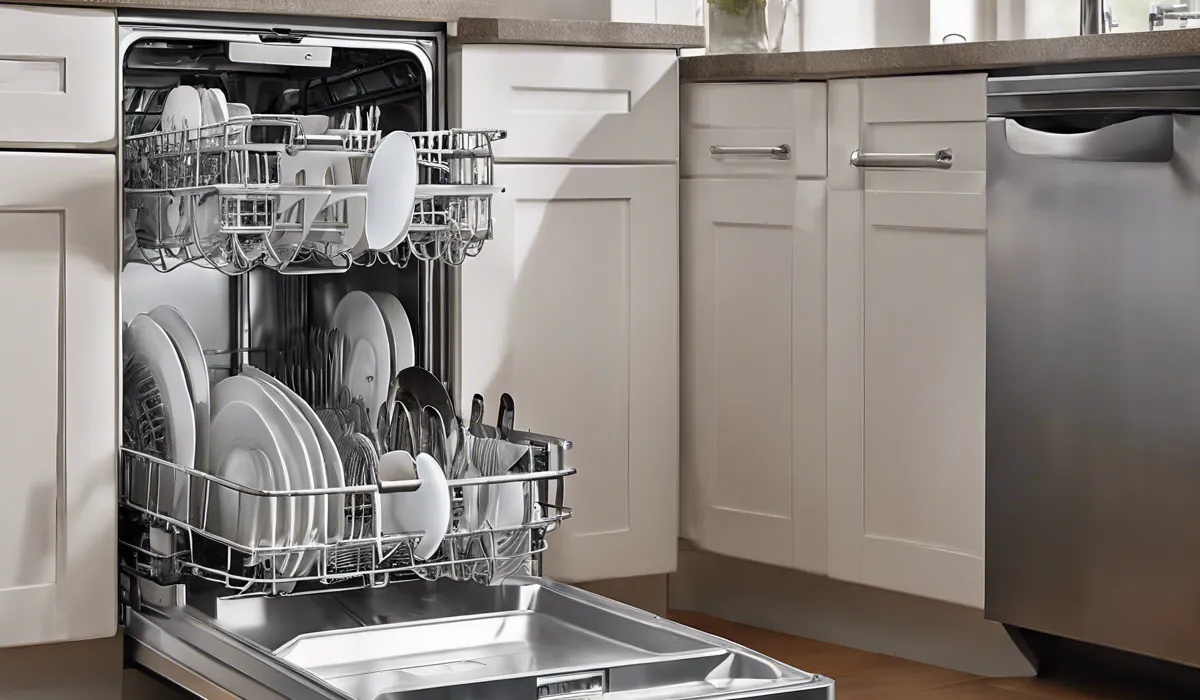
Clogged Filter
The heart of a clean dishwasher is its filter. When food particles and debris accumulate, they can create a significant blockage.
This buildup is often the leading cause of a dishwasher failing to drain properly. Over time, the filter can collect an array of leftovers, from small seeds to larger chunks of food, all of which impede water flow.
Blocked Garbage Disposal
If your dishwasher is connected to a garbage disposal, issues can arise that lead to drainage problems.
Sometimes, a recent installation or lack of use can cause the disposal to block the dishwasher’s path to drain.
A common oversight is forgetting to remove the disposal’s knockout plug during installation, which then prevents water from passing through.
Obstructed Dishwasher Drain Hose
The pathway from the dishwasher to the drain or garbage disposal is via the drain hose. This hose can become kinked or clogged with grease or food residue, causing water to back up into the dishwasher.
Regular inspection is necessary to ensure there are no twists, kinks, or blockages that could restrict the flow of water.
Malfunctioning Drain Pump
The drain pump is crucial for expelling water from the dishwasher. If it’s not working correctly, due to mechanical failures or blockages within, it won’t be able to perform its job.
Obstructions like glass shards or bones can halt the pump’s function, while mechanical issues might require professional repair or replacement.
Faulty Check Valve
A check valve ensures water flows in the correct direction during the draining process. If this valve is stuck or broken, it can prevent water from leaving the dishwasher.
Identifying a faulty check valve early is crucial as it can lead to more severe drainage issues if left unchecked.
Troubleshooting Steps to Identify the Issue
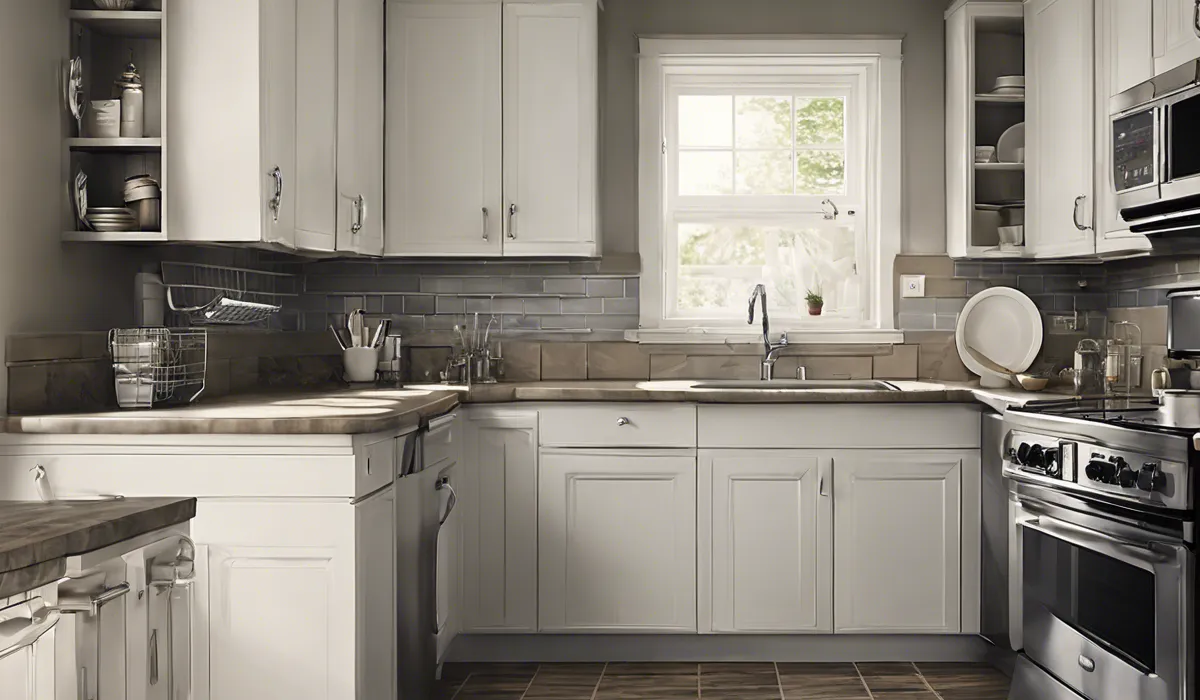
Inspecting and Cleaning the Filter
The first troubleshooting step is to inspect and clean the dishwasher filter. This process involves removing any food particles or debris by hand, followed by a thorough rinse under running water.
A soft brush can be helpful for dislodging any stuck-on matter. Regular cleaning of the filter is an essential maintenance task that can prevent drainage issues.
Checking and Clearing the Garbage Disposal
For those with a garbage disposal, ensure that it’s functioning correctly and that there are no clogs.
Running the disposal can often clear any minor blockages. Also, check that the knockout plug has been removed if the disposal is new.
If the disposal is malfunctioning, it might need to be repaired or replaced for the dishwasher to drain.
Examining and Unclogging the Drain Hose
Inspect the drain hose for kinks or blockages. A gentle straightening of the hose can resolve any kinks. If there’s a blockage, you may need to detach the hose and clean it.
Running a mixture of vinegar and baking soda through the hose can help dissolve any built-up residue.
Assessing the Drain Pump
If the filter is clean and the hose is clear, the next step is to assess the drain pump. Listen for unusual noises that could indicate an obstruction or failure.
Depending on your comfort level with appliances, you may be able to remove and clean the pump yourself. If not, this may be a time to call a professional.
Evaluating the Check Valve
Checking the check valve often requires consulting the dishwasher manual, as its location can vary by model.
Once located, ensure that it moves freely and is not obstructed. If the valve is damaged, it will likely need to be replaced to restore proper function to your dishwasher.
Professional Repair vs. DIY Solutions
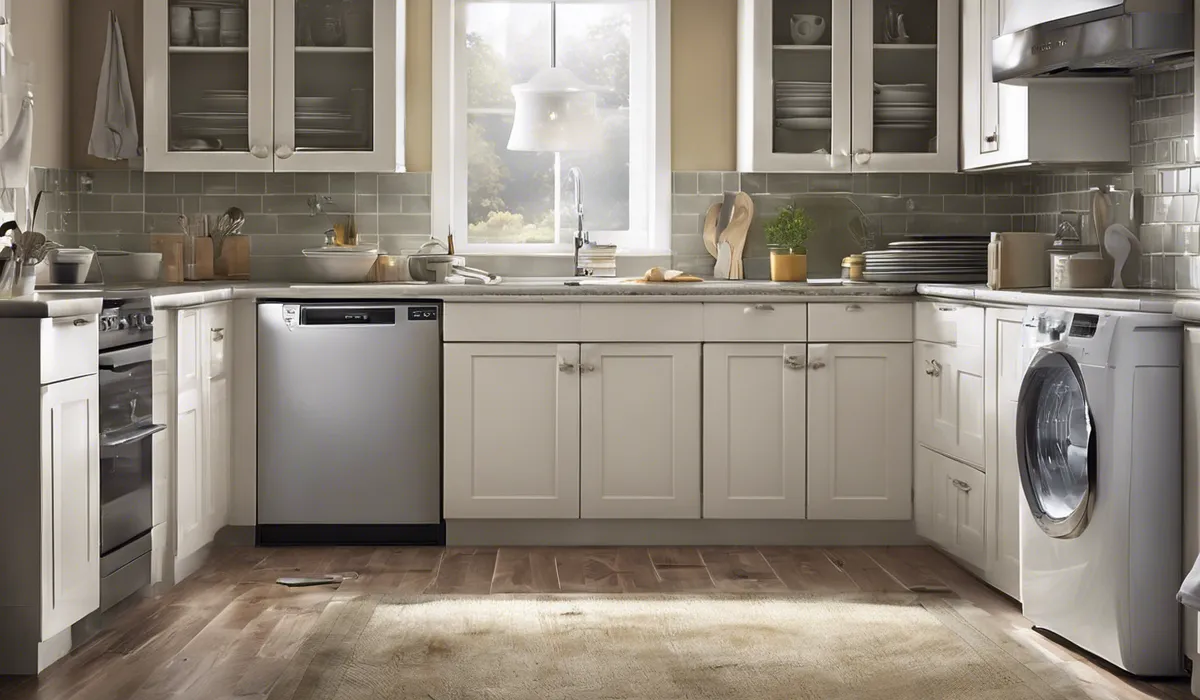
When to Call a Professional
If after all your efforts the dishwasher still isn’t draining, or if you encounter complex issues like a broken drain pump, it’s time to call a professional.
Other signs that professional help is needed include electrical problems or if you’re not comfortable disassembling parts of the dishwasher.
DIY Fixes for Simple Issues
Many dishwasher problems can be resolved with DIY fixes. For example, cleaning the filter, unclogging the drain hose, and running the garbage disposal are all tasks that can be done at home.
Always make sure to consult your dishwasher’s manual and follow safety precautions when attempting any repairs.
Maintenance Tips to Prevent Future Drainage Problems
Regular maintenance, such as cleaning the filter and running a dishwasher cleaner through a cycle, can help prevent future drainage issues.
Additionally, be mindful of what you put in the dishwasher; scraping plates clean before loading can go a long way in keeping the drain clear.
Importance of Using the Right Tools and Parts
When attempting any DIY repair, using the correct tools and parts is essential to avoid causing further damage.
Manufacturers often sell replacement kits that include all the necessary components. Ensure you have a good quality screwdriver, pliers, and perhaps a multimeter if testing electrical components.
Understanding the Limits of DIY
While many issues can be fixed at home, it’s important to recognize when a problem is beyond your capabilities.
There’s no shame in calling a professional if you’re unsure about a repair. It’s better to invest in professional services than to risk damaging the appliance further or putting yourself in danger.
FAQs About Dishwasher Draining Issues
Why is my dishwasher not draining properly?
A dishwasher might not drain properly due to a clogged filter, a blocked drain hose, or a malfunctioning drain pump. These issues can prevent water from flowing out of the machine.
How do I check my dishwasher’s filter for clogs?
To check the dishwasher’s filter for clogs, remove the bottom rack, twist out the filter, and look for any accumulated food debris or grease. Clean it thoroughly before placing it back.
What should I do if my dishwasher’s drain hose is blocked?
If the drain hose is blocked, disconnect it and flush it with water or use a straightened wire hanger to remove the obstruction. Ensure it is not kinked or bent when reinstalling it.
How can I tell if my dishwasher’s drain pump is malfunctioning?
You can suspect a drain pump malfunction if there are no clogs in the filter or hose, but the dishwasher is still not draining. Listen for a humming or buzzing sound, which might indicate the pump is trying to work but is blocked or broken.
Can a dishwasher drain issue be caused by food debris?
Yes, food debris is a common cause of dishwasher drain issues. It can accumulate in the filter or hose, creating a blockage that prevents water from draining out of the dishwasher.
Final Thoughts
If your dishwasher isn’t draining, it’s often due to a clogged filter, a blocked drain hose, or a malfunctioning drain pump.
Regular checks for food particles and grease in both the filter and hose are essential. Also, inspect the drain pump for any obstructions or signs of failure to ensure proper function.

